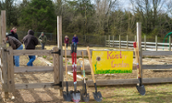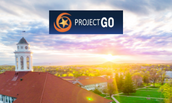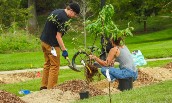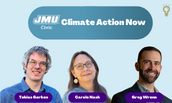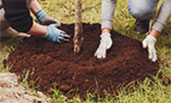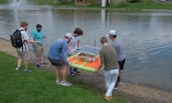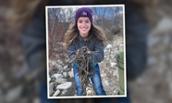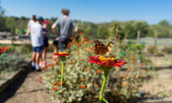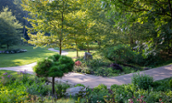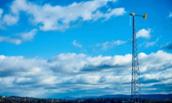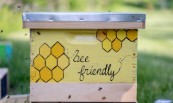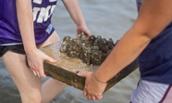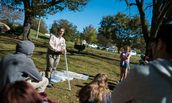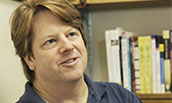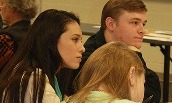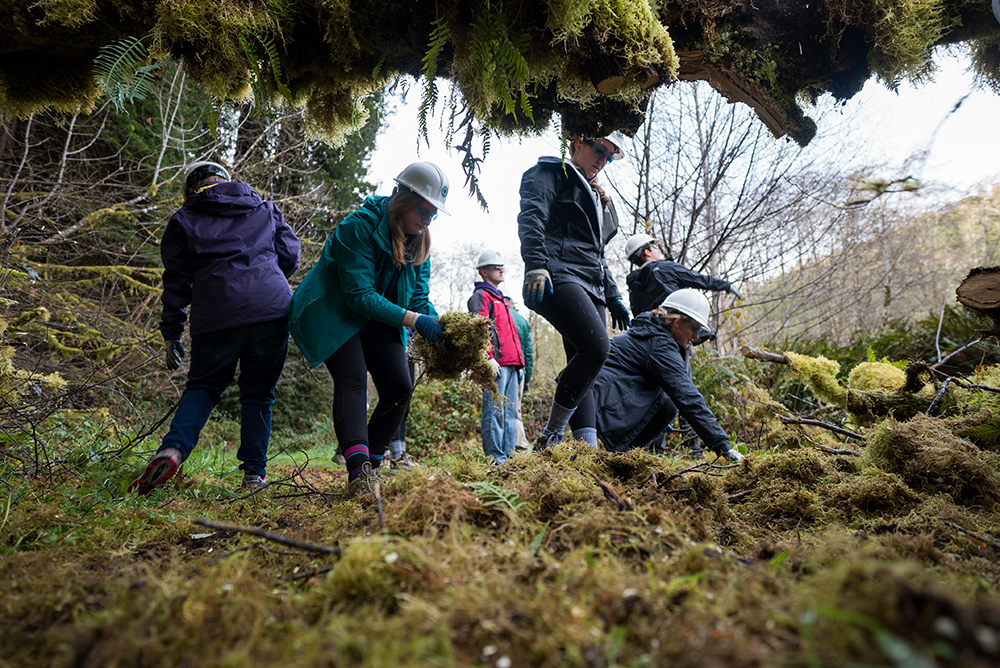
Like so many individuals and groups around the world, many at James Madison University had planned to celebrate this 50th anniversary of Earth Day with on campus and community events. Multiple units at JMU, including the Institute for Stewardship of the Natural World (ISNW), had invested months in planning. While the energetic and meaningful in person dialogues are now rescheduled due to COVID-19, JMU has adapted and continued. As just a few examples, designs for a grant-funded food forest continue being developed across three colleges with communications taking place through email and phone calls, the ISNW and Facilities Management sustainability team at JMU submitted a renewal application to remain a Virginia Environmental Excellence Program Sustainability Partner, and this week the ISNW is working closely with members of the JMU Student Government Association to discuss sustainability-related accomplishments and next steps for our institution.
We hope you will join us virtually and be inspired to further action. In celebration of the 50th anniversary of Earth Day, we invite you to explore 50 examples of the ways the JMU community engages in sustainability challenges and solutions – every day. We believe these illustrate how JMU fulfills its commitment to a sustainable future. We consider our impact on the larger human and ecological communities of which we are a part – from here in the Shenandoah Valley to globally. As an institution of higher education, we contribute through education, scholarship, civic and community engagement, operations, and through our lifestyle choices as individuals. Environmental stewardship forms part of our culture and our broader sense of citizenship. Together, we can make a positive impact.
Thank you,
Institute for Stewardship of the Natural World Team
Christie-Joy Hartman, Executive Director
Amanda Bodle, Program Manager
Essa Paterson, Program Coordinator
Christy Bradburn, Student Program Coordinator
Learning more
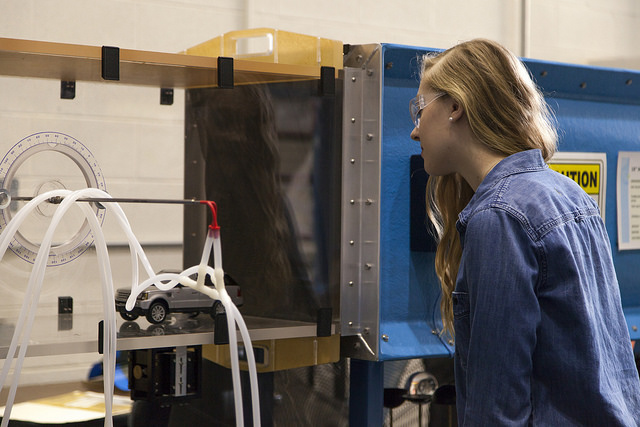
1. Opportunities to learn about the environment and sustainability in courses are not limited to students in environmental programs. All undergraduate students can enroll in General Education courses about the environment through Cluster 3: The Natural World. Courses include GEOL 115: Earth Systems, Cycles and Human Impact and ISAT 100: Environmental and Energy Sustainability. For students who want to delve deeper, from Sociology to Communication Studies, many of JMU’s academic units offer courses that are sustainability-inclusive and/or sustainability-focused. Some courses that explore the environmental dimension of sustainability, such as Econ 305: Environmental Economics and ISAT 424: Natural Resource Management, help students develop environmental stewardship knowledge and reasoning skills relevant to their academic program. Learn more about course offerings related to the environmental, economic, and social dimensions of sustainability.
2. Over a decade ago, JMU adopted a formal commitment to building an environmentally literate community whose members think and act as stewards of the natural world. In moving toward this goal, the ISNW Education and Scholarship Committee developed four environmental stewardship learning outcomes, which are organized by the ISNW, for undergraduate students. One overarching outcome, “Students will be able to explain the interdependence of natural systems and the social, economic, and ethical facets of global and local issues” is among the outcomes for General Education Cluster 3: The Natural World. Student achievement of this outcome is measured as part of JMU’s university-wide assessment process.
3. "Immersive courses regularly offered by JMU faculty members in, for example, Costa Rica, Germany, Kenya and Tanzania, explicitly focus on human-environment interactions and conceptualizations of sustainability/appropriate technology. These study abroad programs promote place-based learning to explore dimensions of rural life, impacts of major cities, varied land uses and pressures on the land, and use and potential of renewable resources, among other things. No matter what your major, there are programs available that will serve you well as you learn more about the three pillars of sustainability – environmental, social, and economic.” -Jennifer Coffman, Ph. D., Associate Executive Director, Center for Global Engagement
Find study abroad opportunities focused on the three dimensions of sustainability: environmental, economic and social at the CGE website.
4. JMU Libraries facilitate sustainability-related research by assisting students and employees with finding, evaluating, and using information for assignments and projects. JMU’s Science and Math Librarian is a liaison to Biology, Biophysical Chemistry, Biotechnology, Chemistry, Earth Science, Geology & Environmental Science, Mathematics, Physics & Astronomy, and Statistics and maintains an Energy and the Environment Guide. Students and employees can make an appointment with librarians to obtain assistance with research.
5. In the 2017 JMU Continuing Student Survey, 69% of respondents indicated that it was important or very important that environmental literacy be a component of every JMU student’s educational experience. The remaining students indicated it was unimportant or very unimportant. Learn more about environment-related minors and concentrations.
6. As a complement to learning about water quality monitoring and management at the watershed level, students of Dr. Tom Benzing, Ph.D., Professor, Integrated Science and Technology, in an environmental hydrology class completed additional training on the basics of stormwater pollution and regulation. Eight students earned a Certified Stormwater Student Certificate from the John Penn Whitescarver Foundation– a non-profit organization division of the National Stormwater Center. For the first time, the foundation delivered the training course online to fulfill this opportunity for our students despite the COVID-19 pandemic.
7. Using a JMU Provost Research Award in 2016, Dr. Mikaela Schmitt-Harsh, Ph.D., Assistant Professor, Interdisciplinary Liberal Studies, and three Interdisciplinary Liberal Studies students inventoried over 450 trees on campus and developed “Trees of James Madison University,” a walking tour of trees on campus. As indicated, the tour highlights the many species of trees on campus and demonstrates how applied student learning can contribute to sustainability. An expanded tree inventory effort in cooperation with Facilities Management is underway.
Doing more
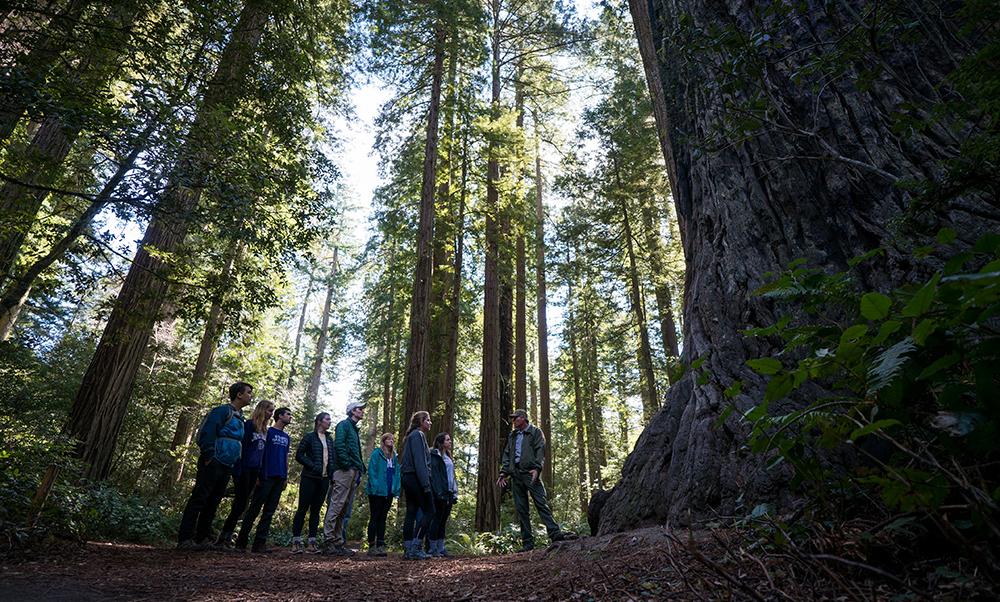
8. "Community Service-Learning is dedicated to educating students about environmental and sustainability issues and inspiring student action. Our Alternative Breaks partner with community organizations locally, nationally, and internationally to explore the effects of topics like climate change, loss of biodiversity, and the imperative to conserve threatened habitats and species and participate in solutions. Students participating in our Service-Learning program enroll in courses designed by JMU faculty members in a wide-range of disciplines.” -Steve Grande, Ph.D., Director, Community Service-Learning
Take part in an environment-focused Alternative Break trip, visit the CEVC website.
9. More than 20 JMU student organizations reported efforts to help the environment. As just a few examples, Campus Kitchen targets food waste and hunger by feeding our campus and local community with food that would otherwise go to waste; JMGrew participants volunteer in the Madison Garden; and JMU Beekeepers increase awareness of the importance of bees and brought JMU’s first beehive to campus. The organization name alone does not always indicate all of the club's activities. Students can explore JMU organizations that help the environment at beinvolved.jmu.edu/organizations by searching using the “environmental” category.
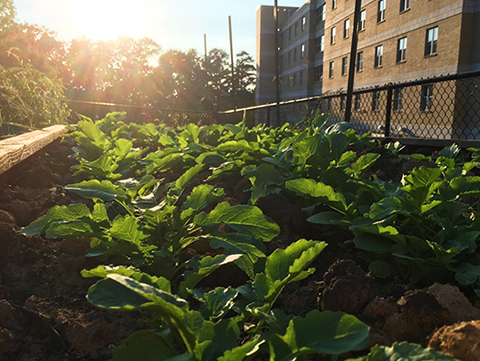
10. “The Madison Center has facilitated programming led by students to engage in peer-based learning about environmental issues and policies at the campus, state, national and international level. Through our Civic Coffee and Donut Discussions, and our Tent Talks, we can provide a forum for students, faculty and staff to not only discuss and deliberate environmental policies and issues, but also to take individual and policy action to initiate that change for environmental sustainability and justice.”
-Abraham Goldberg, Ph.D., Executive Director, James Madison Center for Civic Engagement
To learn more about promoting environmental responsibility through participation in civic life, see the Madison Center for Civic Engagement.
11. Countless opportunities exist to contribute to a sustainable future in our neighborhoods, communities, and around the world, but the issues and decisions can be complicated. For many of us, the challenge lies in determining what we can do as individuals. A Book for the ‘Burg, a community-wide reading program, lets you engage with others in meaningful dialogue around a thought-provoking theme. For example, the inaugural book selection in 2013, Mountains Beyond Mountains, prompted dialogue around poverty and health, globalization and global resource distribution, equity, sustainability, service and decision-making in difficult ethical situations. A Book for the ‘Burg challenges participants to recognize that our choices have significant ethical implications for our own lives, for the lives of those we know in our community, and for the lives of many others in this interconnected world. The 2019 program has concluded, but a new program will be announced for Fall 2020.
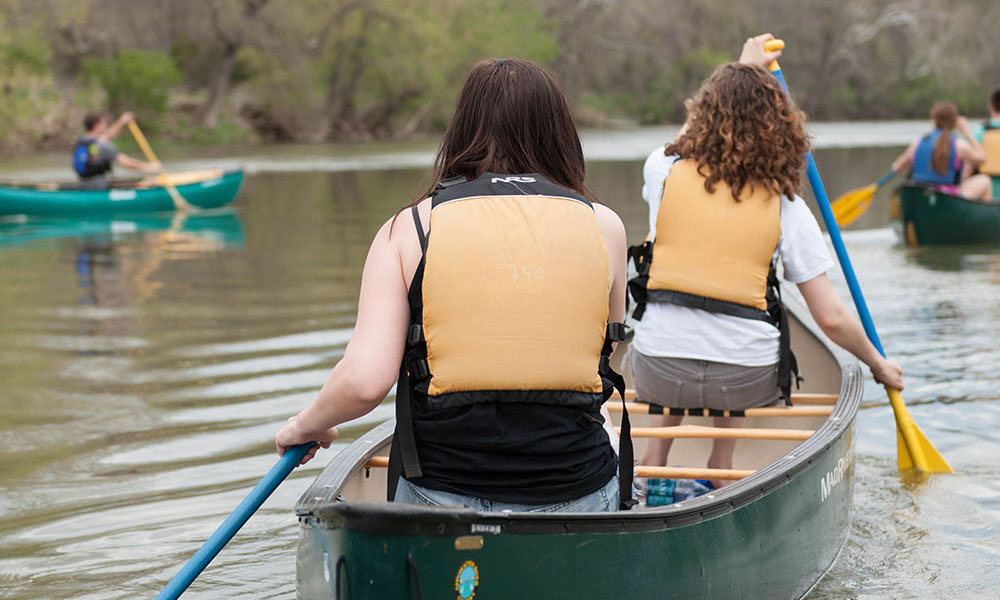
12. Wilderness and outdoor programs that include “Leave No Trace” principles are examples of activities that contribute to students learning about sustainability outside of the classroom. The University Recreation Center’s (UREC) Adventure Program offers trips that teach and follow “Leave No Trace” principles while hiking, kayaking, skiing, canoeing and more. The Wilderness Therapy Programs, a collaborative effort between UREC and the Counseling Center, also use outdoor experiences for learning wilderness techniques while simultaneously building healthy intra- and inter-personal relations and coping skills.
13. Environmental problems are explored, and solutions are developed and implemented on JMU’s campus. Take the Environmental Stewardship Tour to discover some of the places, programs and people involved. The tour includes green buildings, naturalized landscapes, gardens, and science education technology tools, and describes student and faculty engaged learning experiences involving campus facilities and operations.
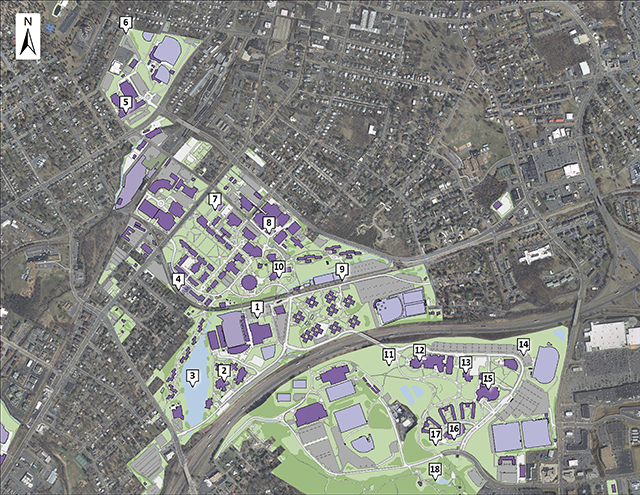
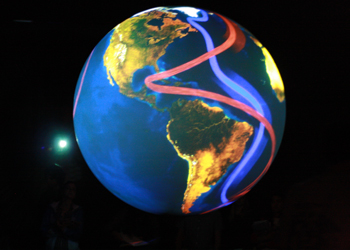
14. JMU was the first university to install Science on a Sphere® (SOS), which was developed by the National Oceanic and Atmospheric Administration (NOAA) as a captivating way to illustrate Earth System Science to people of all ages. With over 125 installations, Science On a Sphere primarily enhances informal educational programs at science centers, museums, zoos, and universities, internationally. At JMU, faculty across many disciplines use SOS as a pedagogical tool in courses, and the community benefits too, as access extends to K-12 students through JMU’s Middle School Visit Program and the STEM Education & Outreach Center. While SOS is most often employed at JMU for science education, it is a spherical display system that is applicable to any discipline. Students and faculty from Writing, Rhetoric and Technical Communication; Art and Art History; and the College of Education have completed projects with SOS.
15. Multiple youth programs at JMU inspire the next generation of scientists and environmental stewards by providing engaging, hands-on learning experiences. As one example, the Science Explorers Camp engages elementary, middle, and high school students in separate week-long investigations of different areas of science, including biology, earth science, chemistry, forensic science, physics and astronomy, and more. Learn about this and other opportunities through Professional & Continuing Engagement.
16. Learning is a lifelong endeavor, and JMU’s Lifelong Learning Institute offers courses for continued exploration of important environmental concepts and issues. Exploring Ecosystems of the Valley takes learners on excursions to different ecosystems here in the Shenandoah Valley. The course explores native plants or animals known to occur in these places and the importance of their roles in the ecosystem. Learn about current environment-related and other continuing education opportunities at the at the Lifelong Learning Institute.
Leading by example
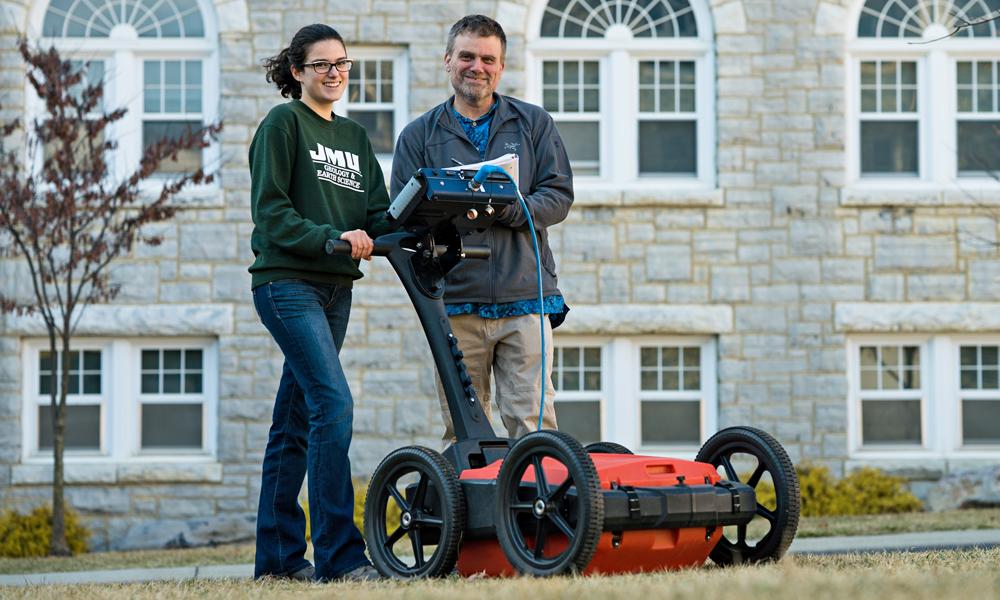
17. Environmental stewardship and sustainability can be components of undergraduate student research across disciplines. As a senior Geology major, Michelle Proulx (’18), conducted research on non-invasive methods to locate and identify antebellum slave cemeteries in an effort to preserve the burial sites and the environmental features of the surrounding grounds, which often include rivers already facing significant erosion or trees that are more than 100 years old. With travel funding from the ISNW, Michelle presented her work, "Reclaiming history with geophysics: using ground-penetrating radar to confirm the locations of antebellum African-American cemeteries," at the Geological Society of America conference in Seattle, Washington (2017). Full-time undergraduate students can apply for conference support to present scholarly and creative work related to environmental stewardship and sustainability.
18. Locate JMU faculty members from many disciplines who are conducting research that leads toward solutions that simultaneously support social well-being, economic prosperity, and ecological health.
19. The results of the Residence Life Perception Studies from 2013 to 2017 indicate approximately 69% of students agreed or strongly agreed that their residence hall was environmentally friendly, and they could see efforts being made by residents to recycle, conserve water, and save energy. Each year, most of the remaining students selected “disagree” with less than 7% each year selecting “strongly disagree.” For those new to the residence halls, get started with tips on Greening Your First Year. For those off campus, explore
5 Ways to Help Virginia's Environment.
20. The Greening Your Event Program encourages and recognizes the voluntary sustainability efforts that many JMU event organizers make to improve campus sustainability performance and engage the broader community around sustainability challenges and solutions. The program includes a brief event planning checklist and offers suggestions for making more sustainable choices around catering, transportation, energy, and more.

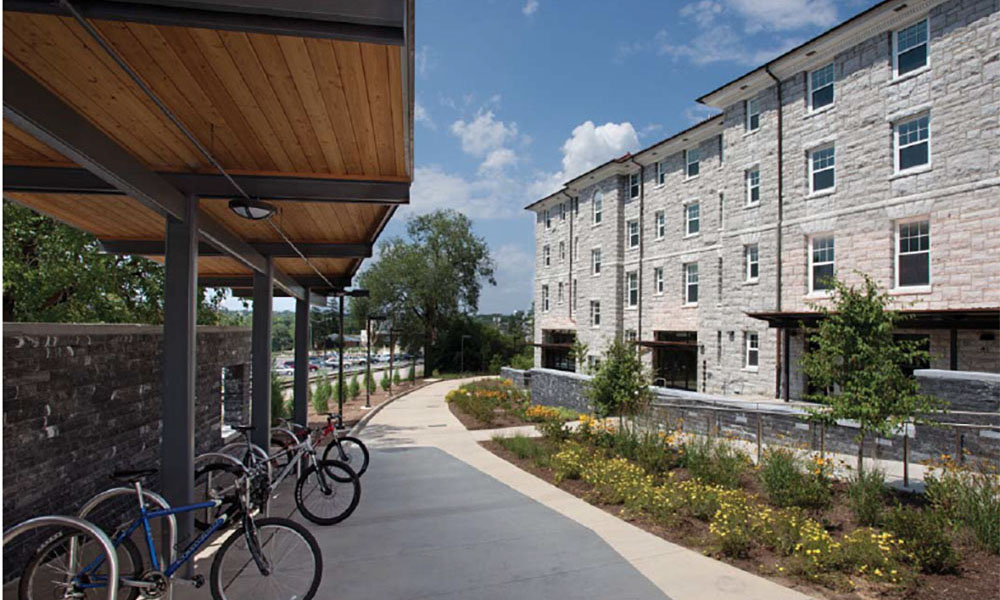
21. JMU boasts the first renovated residence hall in the United States to achieve platinum-level LEED (Leadership in Energy and Environmental Design) certification in 2012. Unique features include a ground source heat pump that contributes to the building’s 39% reduction in energy consumption. In addition, a 10,000 gallon cistern holds rainwater that is used for toilet flushing, which helps achieve 68% water savings.
22. In 2018-2020, Aramark, the Institute for Stewardship of the Natural World, and Facilities Management collaborated to participate in the Food Organics Category of RecycleMania. Efforts included an educational campaign to reduce wasted food and "Weigh the Waste" events. JMU tracked the food sent to Royal Oak Farm to be recycled during the RecycleMania competition. The awareness campaigns during RecycleMania focused on reducing wasted food. JMU's RecycleMania ranking was 33 of 148 (with 20.43 points) in 2019 compared to 67 of 168 (with 19 points) in 2018.
23. Events can contribute to campus environmental sustainability progress and engage our community in solutions. The Feminisms & Rhetorics Conference, hosted at JMU in November 2019, participated in the Greening Your Event Program. In addition to incorporating recommended sustainability practices related to transportation, energy, and food, conference organizers leveraged the event’s “DIY Feminist Activism” theme and invited attendees to participate in a “Swag Swap,” for which the Carrier Library’s Makery provided DIY tools and resources for participants to transform and repurpose donated items.
Being the change
24. At the end of 2018, JMU earned a STARS Gold rating in recognition of its sustainability achievements from the Association for the Advancement of Sustainability in Higher Education (AASHE). STARS, the Sustainability Tracking, Assessment & Rating System, is a voluntary, self-reporting framework for helping colleges and universities track and measure their sustainability progress. The framework includes the environmental, social and economic dimensions of sustainability. More than 100 people at JMU participated in the STARS process, including representatives from Facilities Management, Academic Affairs, Human Resources/Talent Development, Community Service-learning, the Health Center, Financial Aid, Risk Management, Access and Inclusion, Institutional Research, and Engagement.
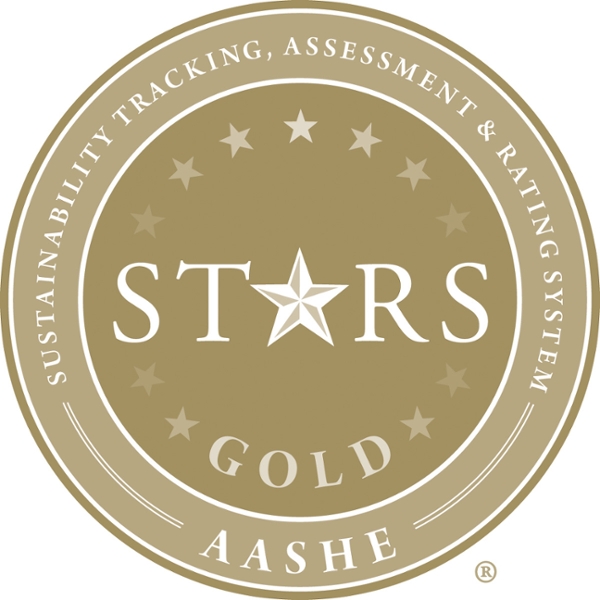
25. JMU has 10 LEED (Leadership in Energy and Environmental Design) certified buildings, an effort which is organized by the Facilities Management sustainability team. JMU Policy 1703 requires all new building construction or new renovation to existing buildings to be designed under one of three green building standards. Learn more about JMU's green buildings.
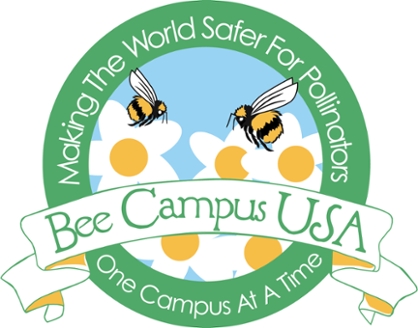
26. In early 2019, JMU became the 66th college/university to become a Bee Campus USA affiliate, joining the national movement to ensure a better future for pollinators and communities. Bee Campus USA fosters ongoing dialogue to raise awareness of the role that native pollinators play in our communities and what individuals can do to provide pollinators with healthy habitat.
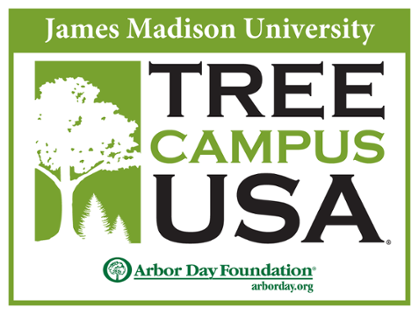
27. JMU maintains the Tree Campus USA recognition received in 2017. Tree Campus USA is a national program launched in 2008 by the Arbor Day Foundation honoring colleges and universities for promoting healthy trees and engaging students and staff in the spirit of conservation.
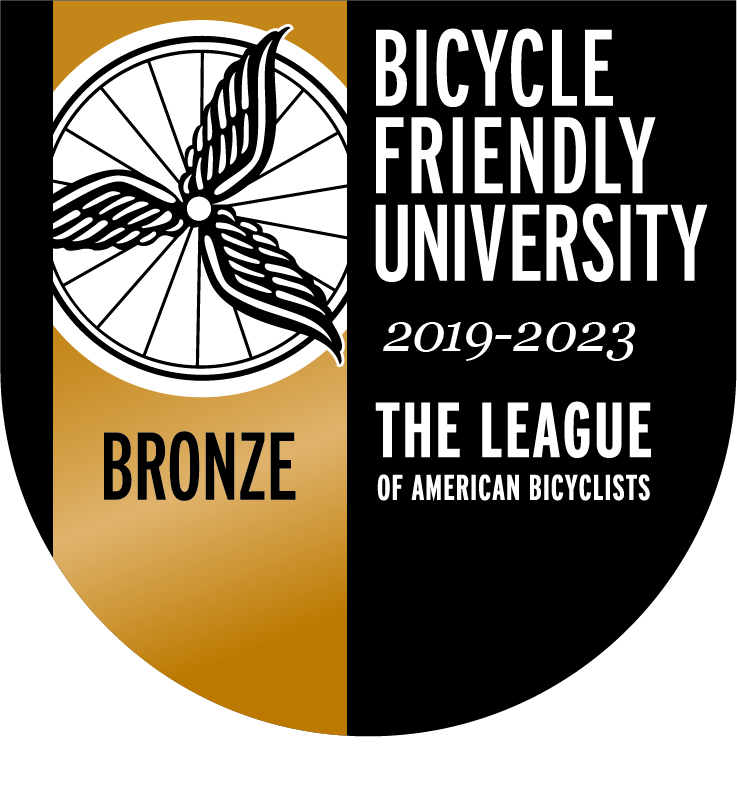
28. JMU’s efforts to promote and provide a more bikeable campus for students, employees, and visitors have enabled JMU to renew its Bronze-level Bicycle Friendly University (BFU℠) status from The League of American Bicyclists in 2019. JMU has been a BFU since 2013.
29. The landscaping on campus not only looks beautiful, but reflects intentional decisions to reduce water use and improve water quality. As just one example of actions to reduce water use, JMU reduced annual planting areas - which typically require more watering than perennials - by 46% between 2015 and 2019. This decreased JMU’s potable water consumption by an estimated 78,000 gallons per year!
30. Replacing vehicle use with more sustainable modes of transportation, such as bicycling and walking, can result in significant environmental and health benefits. JMU’s Bicycle and Pedestrian Master Plan was structured around the 5E's (Engineering, Education, Encouragement, Enforcement, and Evaluation & Planning) as promoted by the American Bicycle Institute. The Plan includes short-term, medium-term, and long-term infrastructure investments, and educational and encouragement programs. The Plan was developed in 2014 and since then the University has invested more than $1.9 million in infrastructure. To learn more about the Bicycle and Pedestrian Master Plan and other campus bicycle resources visit Biking on the JMU Campus.
31. According to the US Environmental Protection Agency, “The most effective way to reduce waste is to not create it in the first place. Making a new product requires a lot of materials and energy - raw materials must be extracted from the Earth, and the product must be fabricated then transported to wherever it will be sold.” JMU Surplus Property provides a no-cost service for JMU units to obtain office equipment, supplies and furniture that are no longer needed by another unit. If Surplus Property does not have what you are looking for, Procurement Services has tips for how to purchase items that are either made of recyclable materials or are recyclable.
32. Year after year, students living on campus head home for the summer and leave behind literally truck loads of useable stuff. For more than a decade, the Office of Residence Life has been meeting this challenge with a solution that benefits the environment and local community. “Why Wait? Donate!” is a program that collects and redistributes students’ unwanted - but still usable - items to local organizations. Non-perishable and unopened food items go to the Blue Ridge Food Bank; clothing, toiletries and small appliances go to the Salvation Army; blank paper, notebooks and stationery go to local school children; and gently used bicycles are connected with someone in need.
33. From the 2019-20 Continuing Student Survey, 52% percent of students indicated that they very often or often considered environmental impacts when making daily choices. Almost 40% of the respondents indicated that they have learned about environmental sustainability in a course.
34 - 39. Examples of undergraduate capstone projects from the School of Integrated Sciences 2019 Senior Symposium illustrate how students at JMU, together with faculty advisors, are working toward creative solutions to complex environmental problems:
- A Political Ecology of "High Impact Learning" Through Study Abroad
Maja Jankowska, Jackie Pickford, Richard Selamaj, Julia Wood - Citizen Science on Virginia's Eastern Shore
Maren Luper - The Impact of Tree Clearing on a Trout Stream Crossed by the Atlantic Coast Pipeline Jack Schrof
- Bee Friendly: Methods for Increasing Pollinator Awareness and Conservation
Anna E. Hellwege-Bales, Molly Rooney, Francesca Marie Ross, Olivia Faye Massie, Christopher R. Quin, David A. Fish, Tristan Mariner, Willem G. Lensink - Identifying Populations Vulnerable to Urban Heat in Bangkok, Thailand
Rebekah Everett - Using GIS to Evaluate Equity in Cycling Infrastructure in Virginia Cities
Hannah Cacner
40 - 50. Read eleven articles about how Dukes – past and present - leverage their interests and experiences to advance sustainability on campus, in the community, and globally.

